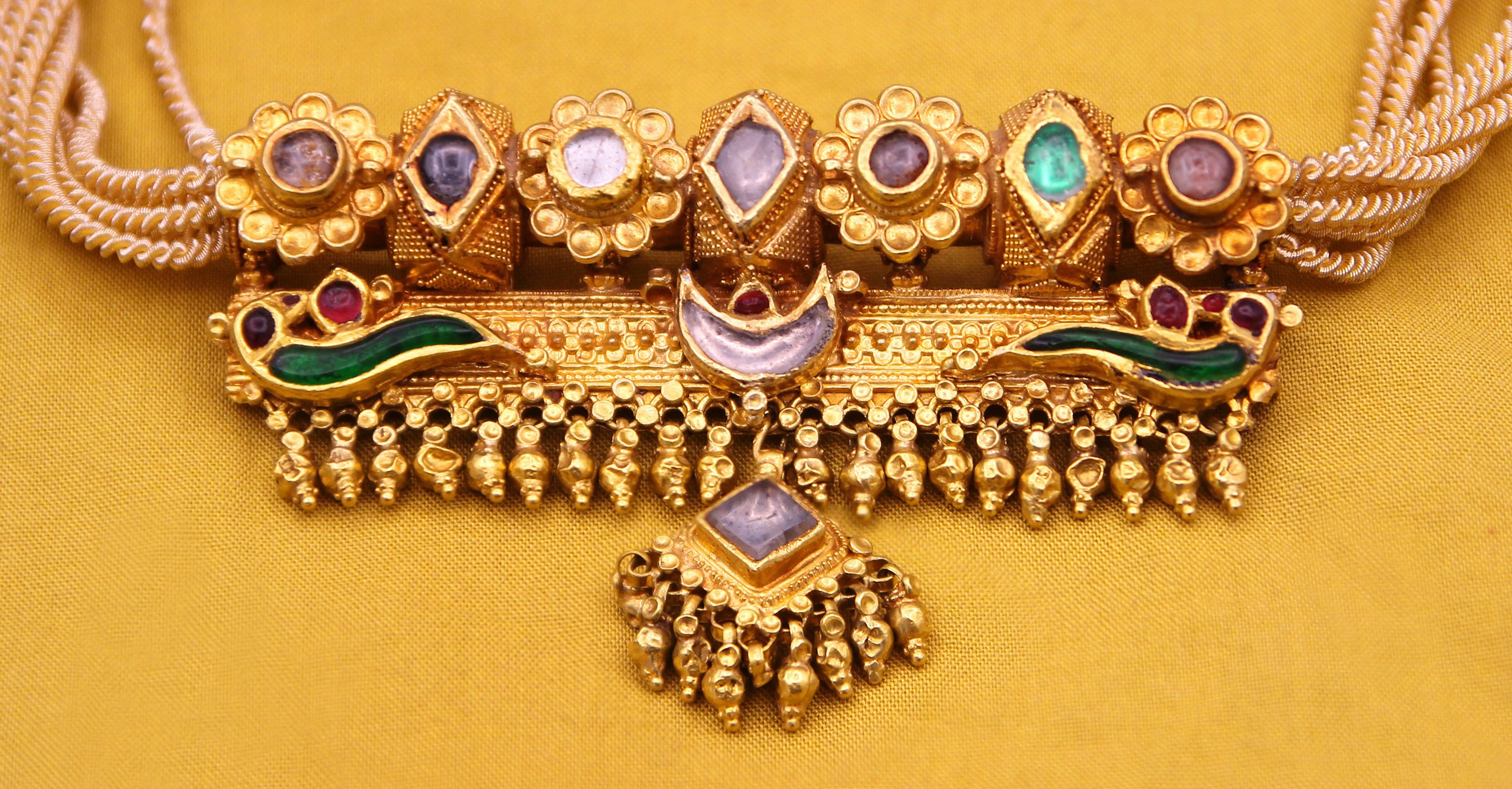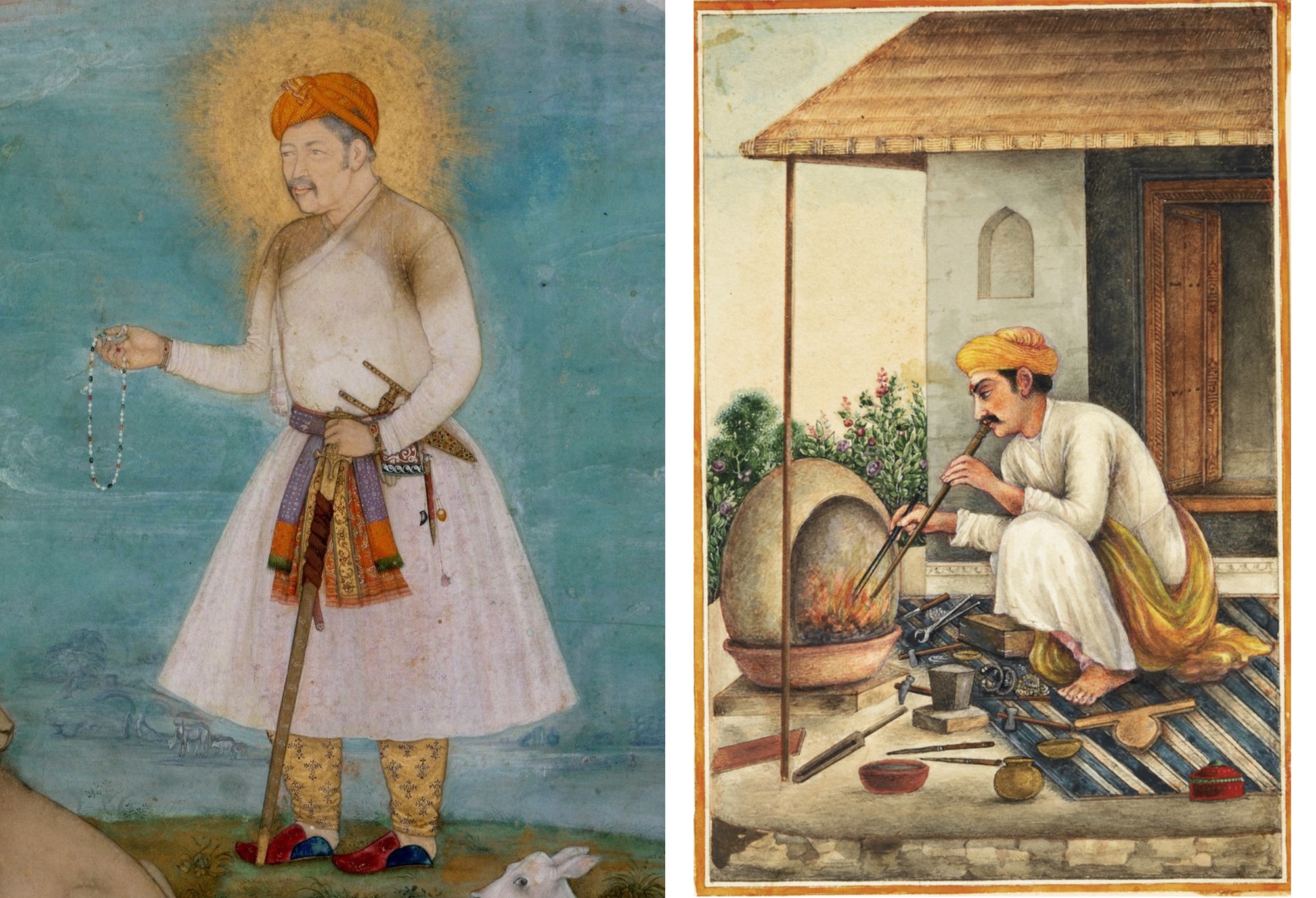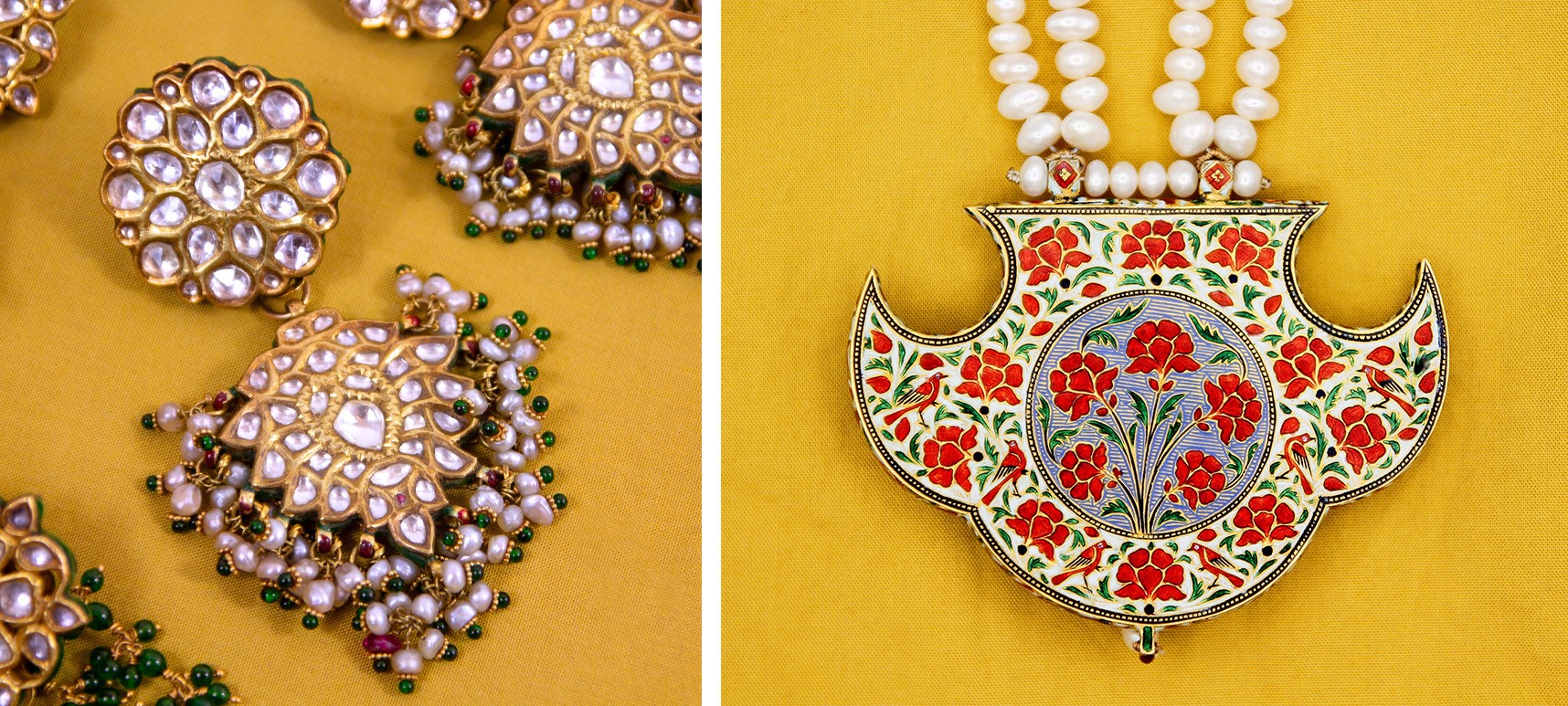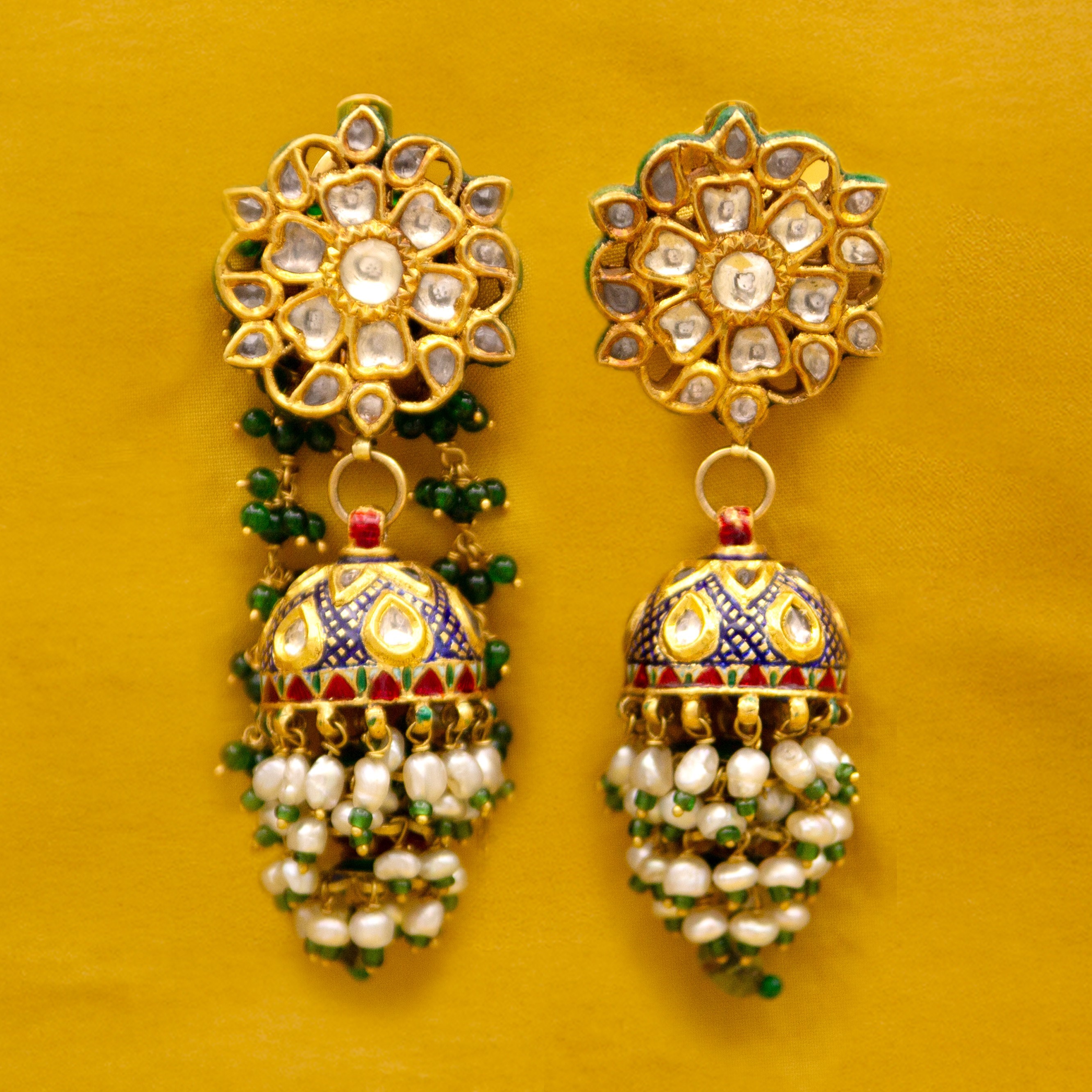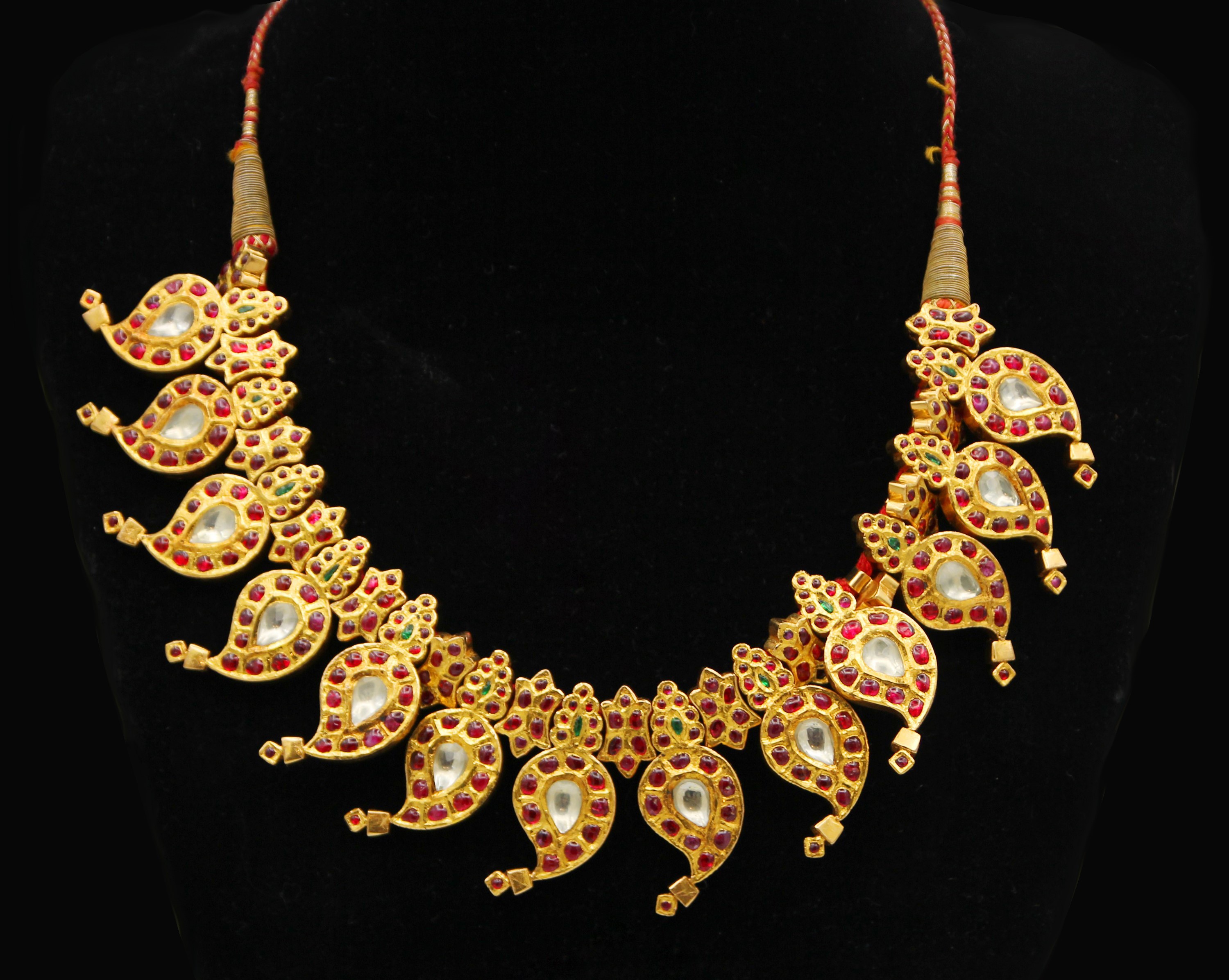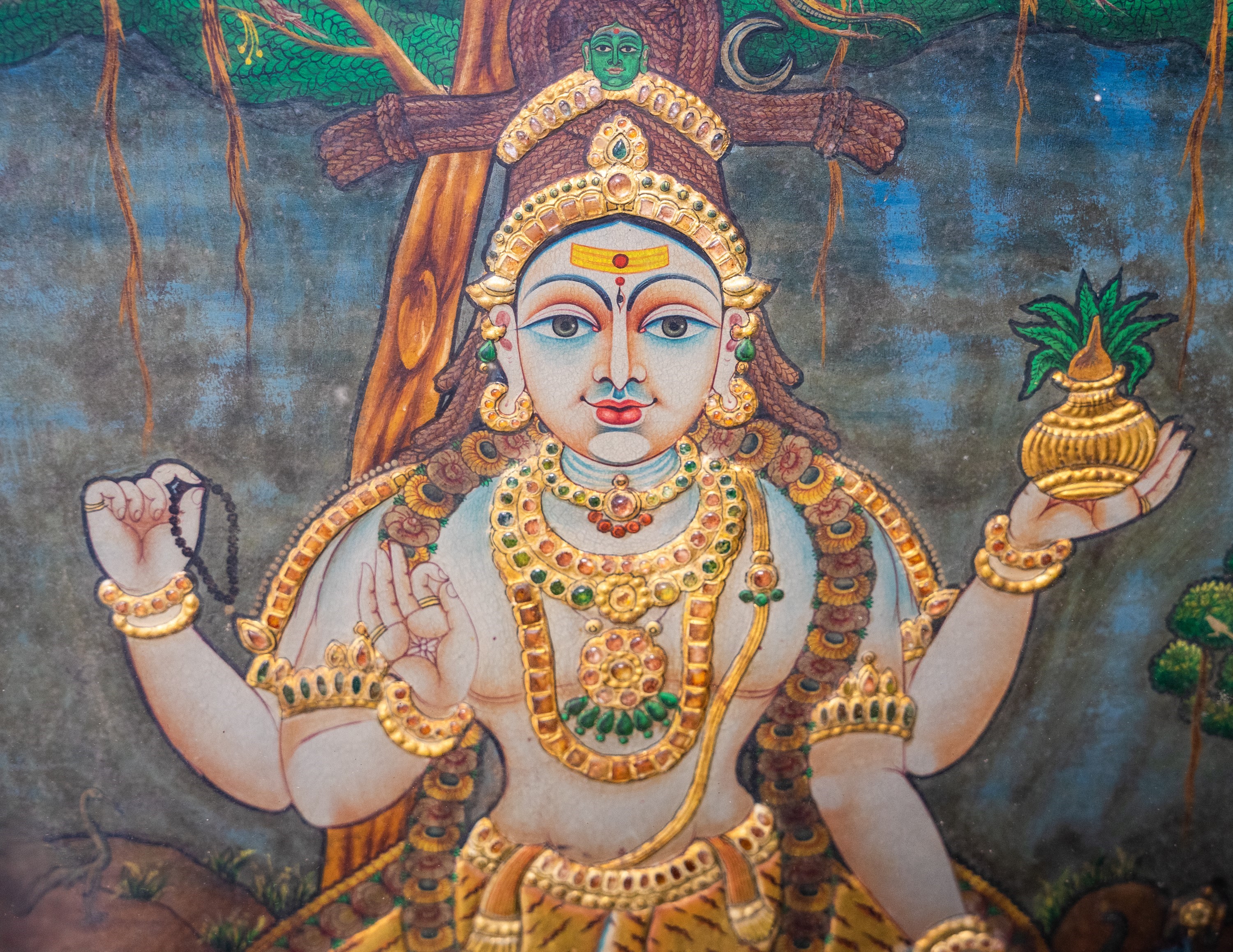We are very excited to present an outrageously opulent and extremely valuable collection of traditional Indian jewellery in our 9th October Fine Jewellery sale, which adds a truly exotic flavour to a sale that is already dripping with exceptional jewels.
This remarkable collection features nearly 40 heritage pieces, many of which would have been worn by an Indian bride as part of her wedding trousseau.
Indian jewellery is rich with meaning and significance, it plays an indispensable role in Indian weddings, embodying not just wealth and beauty but also tradition, culture, and deep-rooted symbolism.
In India, jewellery has always been more than just adornment; it was a symbol of social status, wealth, and power. The tradition of bedecking brides with elaborate jewellery can be traced back thousands of years. Gold, the most revered metal, is considered a symbol of prosperity and good fortune in Indian culture, and in this extensive collection most of the pieces are made from very high purity, 22ct gold.
Many pieces are also highly decorated with brightly coloured 'meenakari' enamel, this decoration, combined with a highly skilled technique used to set uncut diamonds and semi-precious stones is known as 'Kundun' and dates back to the 16th century and the hey-day of the powerful Mughal empire in India.
Left: Akbar the Great and a traditional Indian jeweller
Under the third Mughal emperor Akbar the Great, who reigned from 1556 to 1605, the arts flourished extensively. Akbar was a great patron of the arts, who facilitated workshops under which many Rajput jewellery masters developed and refined unique styles, combining Hindu, Mughal and Persian influences.
Much Indian jewellery is deeply connected to the idea of celebrating femininity, prosperity, and protection. Indian brides wear particular pieces of jewellery for the meanings they carry. Many of these ornaments have exstensive histories, tied to ancient traditions and mythology.
Lot 45. A pair of 22k gold Karanphool Jhumka Kundan earrings set with white sapphires, rubies & pearls
If we look at the Jhumka earrings of lot 45, the origin of this earring can be traced back to ancient Chola temple statues in Tamil Nadu which are as old as 300 BC, where similar pieces adorned the deity statues in the temples. This bell-shaped dangling earring gets its name from the Sanskrit word "jhumki" or the Hindi onomatopoeia for the sound of a jingle or bell, the sound of which is thought to invoke the blessings of the gods. As it was believed Jhumkas were worn by the gods, they are considered talismans that can ward off negativity and bring prosperity.
Lots 46 & 51 are both 'meenakari' enamelled peacock earrings. In Indian culture the peacock is symbolically associated with qualities such as beauty, fidelity and protection so they are a popular choice for auspicious occasions and celebrations.
Lot 40 is a 'Mango Haar' necklace, haar meaning garland and the mango which is considered a sacred fruit, represents various positive attributes. The design is deeply rooted in Southern Indian culture, symbolising fertility, prosperity, good fortune, abundance, and love. The auspicious mango motif drawn from the shape of a stylised mango, is familiar to those in the West as 'paisley' and it has been a recurring element in jewellery and fabric design for centuries.
Lot 40. A 'Mango Haar' necklace in 22k gold, set with rubies, emeralds, and white sapphires
This spectacular collection comes from a local client of Indian heritage, it was their large and extraordinary gold and jewel embellished representation of Vishnu (below) which sold for £14,000 in our most recent antiques sale.
You can visit our
Lanner saleroom if you would like to examine this phenomenal collection, or any
of the many other exquisite pieces in the Fine Jewellery Sale.
Viewing dates are: Sat 4th Oct 9am-12pm and Mon-Wed 6th-8th Oct 9am-5pm.


